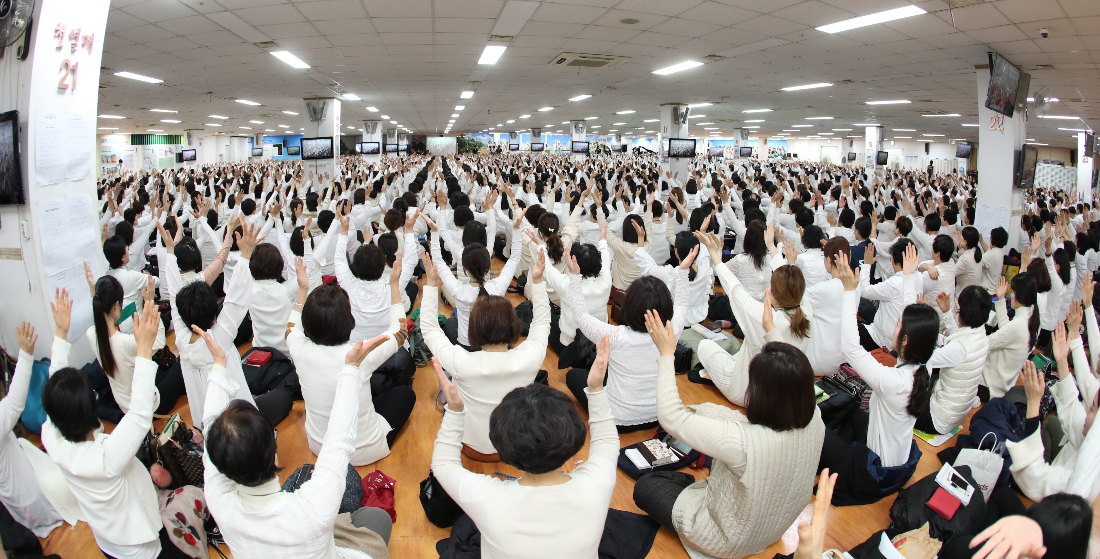July 15, 2020
Dear Foreign Minister Kang Kyung-wha:
We represent NGOs and academic research centers specialized in the defense of freedom of religion and belief. We write to you as we are aware of your distinguished career at the United Nations, and appreciate your attention to human rights.
We have followed with great concern the problems in South Korea of a new religious movement known as Shincheonji. Some of us have studied Shincheonji for years, and some have produced academic studies about it. We are aware that Shincheonji is regarded by conservative Christians as “heretic,” and that they resent its success, which happened mostly at their expenses, and its active proselytization methods.
Opponents have often resorted to violence in their campaigns against Shincheonji. Thousands of its members have been kidnapped by their parents for “forced conversion,” or deprogramming. These activities were protested inter alia by the U.S. Department of State in its Religious Freedom Reports published in 2019 and 2020, which mention the death of Ms. Gu Ji-In (1992–2018), who was suffocated by her father while she was trying to escape deprogramming. A climate has also been created in South Korea where being exposed as a Shincheonji member may easily lead to be bullied at school or in the workplace and even to lose one’s job.
We know that one female member of Shincheonji in Daegu, known as Patient 31, participated to several church activities before being clearly diagnosed with COVID-19, and infected thousands of co-religionists. We also know that authorities then requested the full list of all Shincheonji members (including those abroad), first to Shincheonji leaders in Daegu and then to the national headquarters, and that leaders in Daegu are accused of having omitted 132 names, although these names were later included in the general list handed by the headquarters. We know that other discrepancies or inaccuracies existed in the lists of members, according to the authorities.
We respect the independence of the judiciary in a democratic country, and we do not want to enter technical details. It seems to us, however, that the facts that being exposed as a member of Shincheonji involves serious risks in South Korea, and that no religious organization may be expected to prepare a completely accurate list of more than 300,000 members in a few days should have been taken into account, together with the fact that it is beyond dispute that Shincheonji provided a complete list of all its members who had been in contact with Patient 31, and that several authorities, including the Deputy Minister of Health, characterized the attitude of Shincheonji as generally cooperative. Surely, there is a duty to assist the authorities during a pandemic, but in a case like this one privacy concerns are not unreasonable, and it is unclear why lists should have been provided including members who never had contacts with Patient 31 nor attended meetings during the pandemic, including members living abroad.
We regard the fact that all facilities of Shincheonji in South Korea have been closed and remain closed to today, so that worship services are possible only online, that the corporation of the church and even the related humanitarian branch HWPL have seen their charters revoked, that civil lawsuits have been started asking Shincheonji to pay a large part of the costs of the pandemic in Daegu, and that leaders of the movement have been arrested as a disproportionate reaction to the mistakes some in the church may have committed. Other groups, religious and non-religious, also committed mistakes that contributed to the spread of the virus in South Korea. None has been treated with a similar harshness.
It is difficult for us to avoid the impression that COVID-19 is not the main issue here, and that this is just the last chapter in the decade-long effort by conservative Christian organizations to have Shincheonji’s banned and its growth at their expenses put to a halt.
We join USCIRF, the U.S. Commission on International Religious Freedom, who noticed that obviously South Korea has a right to implement all appropriate measure to contain the epidemic, but this should not happen at the expenses of religious liberty – and, we would add, this has nothing to do with a deliberate attempt to destroy a religion.
We urge you and the South Korean government to consider these widespread international concerns, and to protect the rights of Shincheonji members to freely practice their religion, as mandated by article 18 of the Universal Declaration of Human Rights.
Respectfully,
CAP-LC – Coordination des Associations et des Particuliers pour la Liberté de Conscience
CESNUR – Center for Studies on New Religions
EIFRF – European Inter-Religious Forum for Religious Freedom
Fedinsieme [Faiths Together]
FOB – European Federation for Freedom of Belief
FOREF – Forum for Religious Freedom Europe
HRC – Human Rights Committee.
HRWF – Human Rights Without Frontiers
LIREC – Center for Studies on Freedom of Belief, Religion and Conscience
ORLIR – International Observatory of Religious Liberty of Refugees
Osservatorio sul Pluralismo Religioso [Observatory of Religious Pluralism]
Soteria International



